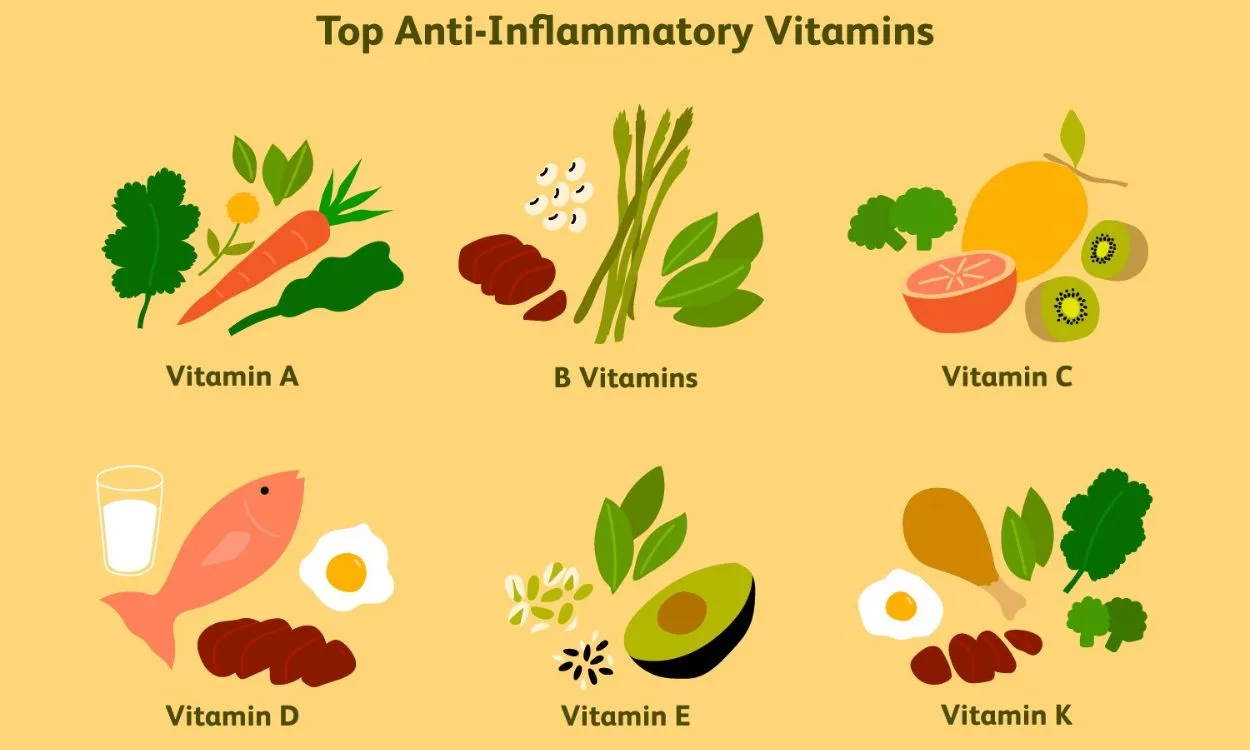Can Vitamins and Minerals Help with Inflammation?
Inflammation is a natural response by the body’s immune system to protect against injury, infection, or illness. While acute inflammation is beneficial, chronic inflammation can lead to various health issues, including autoimmune diseases, heart disease, and cancer. Vitamins and minerals play a crucial role in modulating the body’s immune response and can indeed help in managing inflammation.
Understanding Inflammation
Inflammation is characterized by redness, swelling, heat, and pain, and it can occur in response to various triggers such as pathogens, irritants, or damaged cells. When the body detects an invader or damage, it releases chemicals that trigger an immune response, leading to the recruitment of white blood cells and the production of inflammatory mediators.
Role of Vitamins in Inflammation Management
Vitamin D
- Vitamin D is known for its anti-inflammatory properties and plays a crucial role in immune system regulation.
- Adequate levels of vitamin D have been associated with reduced inflammation and a lower risk of chronic diseases such as heart disease, diabetes, and autoimmune conditions.
Vitamin C
- As a powerful antioxidant, vitamin C scavenges free radicals and reduces oxidative stress, which is often associated with chronic inflammation.
- Vitamin C also supports the synthesis of collagen, an essential component of connective tissue, promoting tissue repair and reducing inflammation.
Vitamin E
- Vitamin E acts as an antioxidant, protecting cell membranes from oxidative damage and reducing the production of pro-inflammatory cytokines.
B Vitamins
- B vitamins, particularly B6, B9 (folate), and B12, play a role in regulating inflammation by modulating the production of homocysteine, an amino acid associated with inflammation and cardiovascular disease.
Minerals and Inflammation Management
Magnesium
- Magnesium is involved in over 300 enzymatic reactions in the body, including those related to inflammation and immune function.
- Adequate magnesium levels have been linked to lower levels of inflammatory markers and a reduced risk of chronic inflammatory conditions.
Zinc
- Zinc is essential for immune function and has anti-inflammatory effects by regulating the production of inflammatory cytokines and supporting the function of immune cells.
Selenium
- Selenium is a potent antioxidant mineral that can reduce oxidative stress and inflammation by supporting the body’s natural antioxidant defense system.
Omega-3 Fatty Acids
- While not a vitamin or mineral, omega-3 fatty acids deserve mention for their powerful anti-inflammatory properties, which can help reduce inflammation and promote overall health.
Integrating Vitamins and Minerals into a Balanced Diet
- Consuming a variety of nutrient-dense foods is the best way to obtain essential vitamins and minerals for inflammation management. Including foods such as fatty fish, nuts, seeds, leafy greens, citrus fruits, bell peppers, and whole grains can provide a range of beneficial nutrients.
The Fitpaa Approach to Inflammation Management
- While a balanced diet rich in vitamins and minerals is essential for managing inflammation, personalized guidance and support can further enhance the effectiveness of inflammation management strategies. Fitpaa’s AI-driven Metabolism Monitoring and Management technology, combined with expert guidance from nutritionists and fitness coaches, can help individuals optimize their nutrient intake, develop targeted exercise plans, and achieve overall wellness and inflammation management goals.
The Fitpaa App: Your Personalized Health and Fitness Solution
- Whether your goal is to manage inflammation, improve overall health, or achieve specific fitness milestones, Fitpaa offers a comprehensive approach to health and wellness. With personalized Fitpaa Capsules, real-time guidance, and a dedicated team of health and fitness experts, individuals can experience a holistic and scientifically-backed approach to inflammation management and overall well-being.
Conclusion
In conclusion, vitamins and minerals play a significant role in inflammation management by modulating the immune response, reducing oxidative stress, and supporting overall health. While a nutrient-rich diet forms the foundation of inflammation management, leveraging advanced technologies and expert guidance, such as those offered by Fitpaa, can further enhance the effectiveness of personalized health and wellness strategies.
Experience the transformative power of personalized health and fitness solutions with the Fitpaa app. Download the Fitpaa app today to embark on a journey towards optimal health, inflammation management, and overall well-being.
Remember, your well-being is our mission at Fitpaa!









